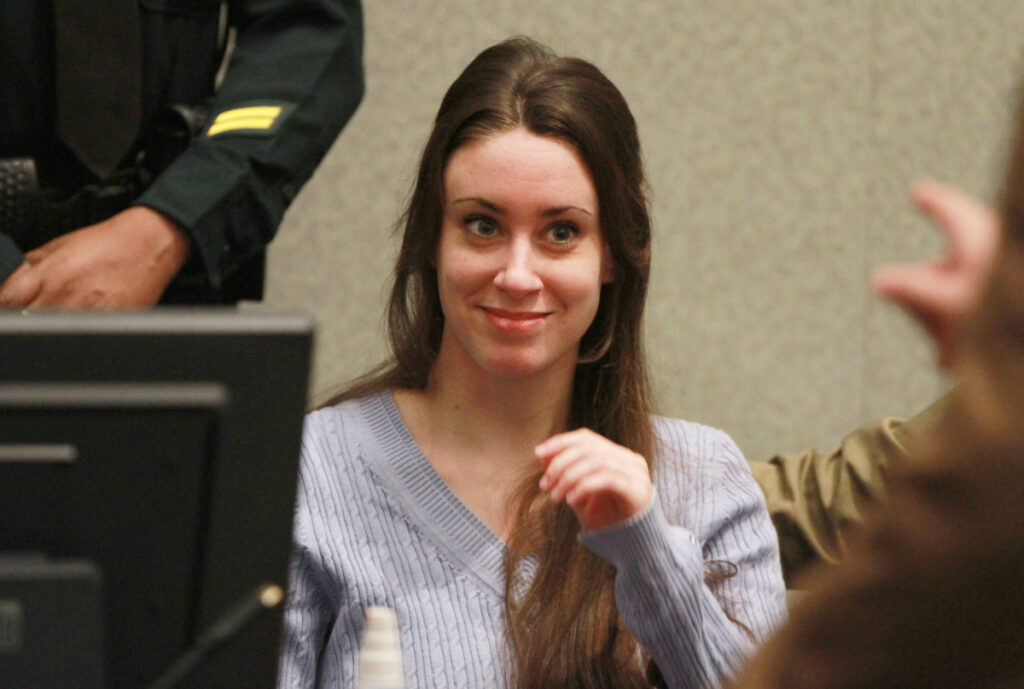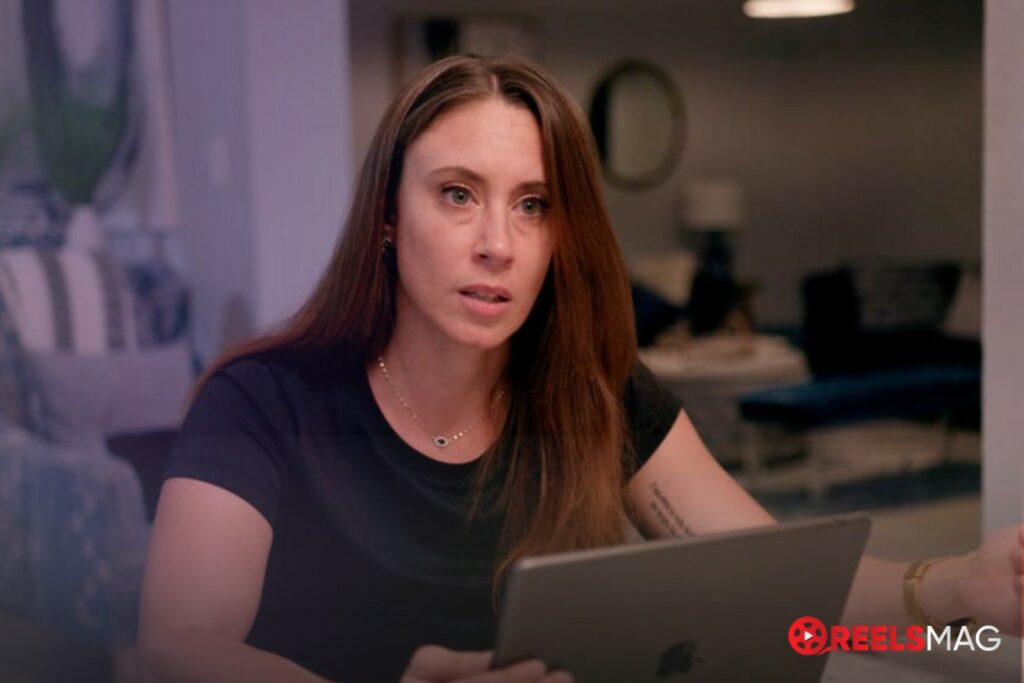Childish Gambino’s 2011 song “Bonfire” features a rap in which he murderously brags that he “made the beat then murdered it, Casey Anthony.” In hip-hop songs, call-outs are usually reserved for talented celebrities such as Halle Berry or Beyoncé, easily recognizable as fodder in witty lyrics. However, Casey Anthony has a different kind of name recognition: In 2008, she was charged with first-degree murder in the death of her 2-year-old daughter, Caylee.
More than ten years after being acquitted, Anthony is trying to share her story in the Peacock docuseries “Casey Anthony: Where the Truth Lies.”
The Anthony trial was highly publicized and controversial, with many people accusing her of being responsible for her daughter’s death. Eventually, she was found not guilty on the charge of murder but guilty on four counts of providing false information to law enforcement. In a new three-episode limited series, Anthony alleges that her father is responsible for Caylee’s death and that he forced her to lie about it.

This year, Jeffrey Dahmer, Anna Delvey, and Elizabeth Holmes were the focus of an incredibly popular limited series based on their lives and crimes. These stories resulted in a new level of fame for these individuals, despite their misdeeds.
The impacts of these entertainment ventures can alter public sentiment and, in some cases, the justice system. A great example is Adnan Syed, the subject of the “Serial” podcast, who had his murder conviction tossed this year. Given that these productions can change someone’s life, we must ask ourselves: Who deserves a platform?
“Where the Truth Lies” allows Anthony to speak for 3½ hours. Her story is at the center of the series. The people on her legal team, who she says have become like family to her since she accused her father of sexual assault, believe in her innocence. But the others interviewed for this show, including Caylee’s detective and some of Anthony’s former friends, think she had something to do with Caylee’s death when she was only 2 years old.
But the doc is not a true-crime reenactment of the case or a “Serial”-Esque investigation. Though it shows viewpoints from people who both support and contradict Anthony, it is largely told from her point of view.
Alexandra Dean, the show’s director, believes that Nancy Grace’s hatred towards Anthony was fed by the media sports obsession with her story–calling her “the most hated mom in America.” This subsequently affected Casey’s public image. “Casey Anthony’s court case coincided with 24-hour cable news and reality television,” said Dean to The Washington Post. Because of that, Casey two-dimensionally turned into a reality TV villain by certain cable personalities.”
Dean, captivated by Anthony’s story and sympathetic to his cause, said she loves the varying responses the project has garnered. She feels as if it’s promoting dialogue instead of hatred.
A lot of the recent talk around this topic has happened on social media. For example, after watching the Peacock show, comedian Rosie O’Donnell said that she believed Anthony was innocent in the TikTok video. In addition, someone who is believed to be Anthony was filmed onstage during a Steel Panther concert which contradicts what she claims in the documentary about being afraid to leave her home.
Adam Golub, professor of American studies at California State University at Fullerton, believes that our culture’s current “age of true crime on demand” has created a blurring between criminal suspects and celebrities. “I think [the docuseries is] a clear attempt to try to remix Casey Anthony into the culture. … This is an attempt to change the story, to change the narrative, … kind of like a celebrity trying to reinvent their image or rebrand their image,” he said.
If criminals start doing PR, that’s when they’ve become celebrities.
Some people are outraged that Anthony is receiving more media attention than the victims, flooding the documentary’s IMDb page with complaints. This mirrors the response to Netflix’s “Dahmer – Monster: The Jeffrey Dahmer Story,” which creator Ryan Murphy defended in a New York Times interview: “What are the rules now? Should we never do a movie about a tyrant?
“The answer to Murphy’s question is no, and Post columnist and former cannibalism scholar Monica Hesse has provided the reasoning behind that response. “Is ‘Dahmer’ a show that should have been made? You don’t even have to start an episode to become convinced that the answer is no. Relatives of the serial killer’s 17 victims have been vocal in saying the show retraumatized them.”
Rita Isbell, the sister of Errol Lindsey, who was killed by Dahmer, said she was dismayed to see her impassioned speech in court reenacted word for word and turned into a meme on the Netflix show.
Dean was displeased with the opinion that the people sharing true-crime stories don’t need to be heard. She exclaimed, “I’m surprised that a few members of the press have chosen to agree with the public in saying Casey and I should stay mum. That’s not what I anticipated. Sure, I expect critics to argue about whether or not they like my films’ artistic choices – but to demand we have less freedom of speech for the press? Now *that* stunned me.
It’s evident that even if the general public isn’t queuing up for these stories, audiences still have an appetite for them. “Dahmer” is one of Netflix’s most-watched shows, according to the streamer. A 2017 documentary about Anthony set records for its host network, Investigation Discovery when viewership reached 2.9 million people.
Golub said that though it is popular, it is still unknown what benefits come from reality TV shows focused on criminals. “Is there a need in society for criminal celebrities? What effect does this have on us as a culture?” Golub asked.
Source: The Washington Post

